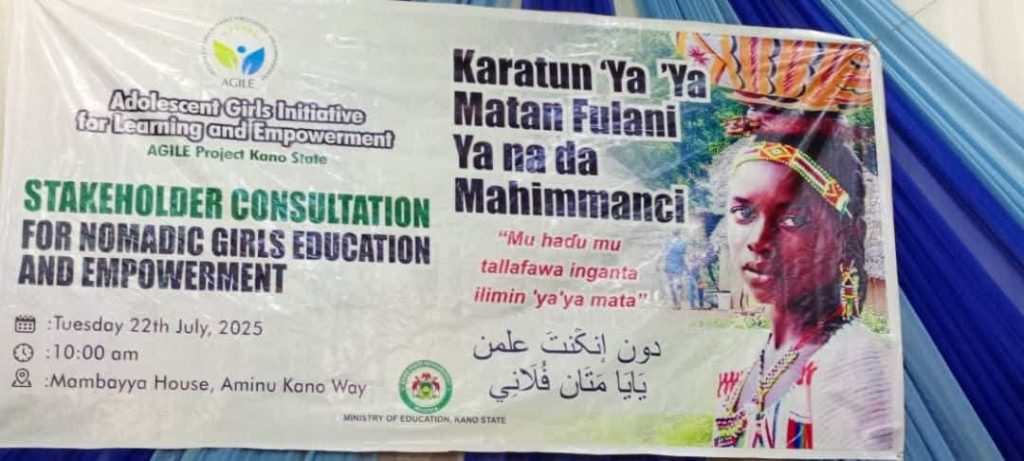In a significant move to bridge educational gaps among nomadic communities, the Adolescent Girls Initiative for Learning and Empowerment (AGILE) Project has launched a Mobile Classroom System to improve access to education for Fulani girls in Kano State.
The initiative was unveiled during a stakeholders’ engagement meeting held at Mumbayya House, Kano.
AGILE Assesses 100 Girls With Cognitive, Developmental Disabilities
The project specifically targets Fulani girls, many of whom have been unable to attend regular schools due to the frequent movement of their families and lack of accessible infrastructure.
Speaking at the event, AGILE State Coordinator, Malam Mujtapha Aminu, explained that the mobile classroom concept will allow adolescent girls from nomadic communities to access both religious and modern education within their settlements.
We pointed out that the system is designed to meet the girls where they are, taking into account the realities of their mobile lifestyle.
“We call on all stakeholders to support and sustain this effort to ensure no girl is left behind.”
AGILE Raises CCT to N60,000 to Boost Girls’ Education in Kano
Also speaking at the event, a lecturer with the Department of Adult Education and Community Development, Bayero University Kano (BUK), who doubles as the co-chair Kano state Accountability Forum on education, K-SAFE, emphasised the need for long-term structural reforms to address the educational challenges of nomadic populations.
“We must go beyond temporary solutions, there is a need for flexible, community-rooted learning systems that accommodate the unique socio-cultural dynamics of nomadic communities.
He further urged the Kano State Government to prioritize nomadic girls’ education in its annual budget and explore informal learning platforms, such as radio and television programs, to reach children in remote areas.
“Education is a right, not a privilege. Fathers and community elders must take the lead in protecting and promoting that right for their daughters,”
In his remarks, Chairman of the Fulani association (Fuldan), Kano Alhaji Sani Adamu Dakata, expressed optimism about the impact of the mobile classrooms.
“The main reason many of our children, especially girls, are not getting an education is our migratory way of life. If this mobile system is properly implemented, it will transform the future of Fulani girls,”
He also called for the renovation of existing nomadic schools, many of which have fallen into disrepair due to years of neglect.
During the engagement, government officials, community leaders, academics, and civil society representatives discussed innovative strategies for advancing education among marginalised groups.
The stakeholders pledged their collective support for the AGILE project and reaffirmed their commitment to ensuring inclusive, equitable, and uninterrupted education for all children in Kano, regardless of their background or location.





